Вы здесь
Prishvin's story "Argali."
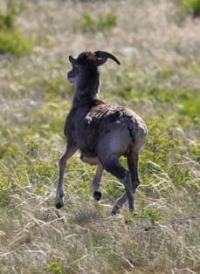
Argali in Karkaraly Park.
"We climb higher and higher; it's terrifying to think that we'll have to descend such a steep slope. When it becomes impossible to ride the horses, we simply abandon them. They won't go anywhere, only moving from one hole to another filled with melted snow. We lie down at a height and try to make sense of the vast landscape of valleys and hills. From here, it's very difficult to distinguish an argali from a red bush. Khali himself asks me, pointing to a suspicious spot, whether it's an argali or a rock. Binoculars are necessary, but no. It seems the argali is standing, head bowed, grazing…"
Mikhail Mikhailovich Prishvin. 1926.
Watching argali in Karkaraly Park.
The blue mountains resemble the tents of giants roaming these steppes. Our mountains, where we'll be shooting mountain sheep, are called Kyzyltau, meaning "red mountains." From a distance, they also appeared blue to us, but as we approached, they turned black, bordered by yellowing bushes.
In the Biy-Dzhin valley, a cheerful stream entices us, and despite Tokmet's protests, we decide to pitch our home there. Our caravan stops. "Chok, chok!" Tokmet shouts to his camel. He bends his knees and lies down. We untie the large circle - the base of the yurt.
We insert the poles, cover them with felt, then throw more felt over them, creating a natural opening for smoke. I wake up in the middle of the night in horrific pain and see this scene: all of us, completely naked, sitting by the fire, cursing, cutting ourselves with knives.
My body, too, is covered in black spots, exactly like the heads of nails driven into my flesh. Tokmet was right in insisting against spending the night by the stream: shepherds with their sheep stop near the water during migrations, and there are always a lot of ram ticks left behind.
After clearing our bodies of the ticks, we make torches from ram fat and, by their light, carry our house.
The itch from the ticks keeps me awake for a long time, and it seems as if I've just barely fallen asleep when I hear Khali's voice, repeating the same phrase:
- "Come on, Veter Ivanovich, get up and shoot the argali!"
Khali is so agile, nimble, and caring; I believe his story that he once caught a wild boar by the ears for Vereshchagina and rode it until he had it pinned. Most likely, he hasn't slept a wink. And it's hard for him with the fat man. We're already dressed and drinking tea, and Khali keeps repeating,
- "Come on, Veter Ivanovich, get up and shoot the argali!"
Khali is worried because the argali descend from their mountain dens to feed in the valley very early, before dawn, and rise as soon as the sun warms them. There's not much time for hunting... we'll be looking for tracks in the dew, spying on grazing animals from the mountains.
Veter Ivanovich rises with difficulty, combs his hair, and says,
- "Until I comb my hair, something keeps nagging at me."
He drinks his tea, burning his lips, and grumbles,
- "The devil knows why. As soon as I leave the house, I start getting hangnails on my fingers."
Veter Ivanovich considers himself an experienced hunter and has repeatedly told us that he will hunt the argali on his own. Having slung a huge flask - certainly not filled with water - he leads his horse to a rock and slumps heavily into the saddle.
He rides behind us for a long time, a pompous colonel in a red cap matching the red argali sheep and the autumnal red bushes, and in a red beshmet. He'd been cherishing this argali hunt for years, and had foreseen everything. The only thing he'd overlooked was that his belly, swollen with kumiss, had grown over the years, and now it had reached the point where, if he were to climb, as he had to, up the almost sheer cliffs, the bow would certainly pierce his belly.
The sharp-eyed Kazakhs, and the mocking ones: Khali had foreseen everything about the bow and the belly, whispered everything to me, and planned to get rid of such a hunter at all costs. And, of course, he deliberately chose the path over the steep cliff.
To keep from falling, I grab the horse's mane, and when it's no longer scary to look down, I see Veter Ivanych sauntering off somewhere.
Smiling, Khali says,
- "Veter Ivanych scared the argali!"
That means we can't hunt with him; he'll scare the argali. We climb higher and higher, terrifying to think that we'll have to descend such a steep slope. When it becomes impossible to climb the horses, we simply abandon them. They won't go anywhere, only moving from one hole to another filled with melted snow.
e lie down high and try to make sense of the grandiose landscape of valleys and hills. From here, it's very difficult to distinguish an argali from a red bush. Khali himself asks me, pointing at one A suspicious spot, perhaps an argali or a rock. Binoculars are necessary, but no.
It seems the argali is standing, head bowed, grazing. We decide to descend to it, but first we need to study the area thoroughly, otherwise we'll get lost and find nothing. Khali studies with her memory, and I sketch out a plan on paper. During this time, a golden eagle once flew very close to us, and soon a fox poked its head out and stared after it for a long moment.
Such a transparent autumn silence in these foothills of Altai and Tarbagatai; perhaps no human foot has ever set foot here. Over there, the white skull of some animal that died a natural death glimmers. And down there, in the clear valley, from behind a black rock, a living creature appears, followed by another, then a third...
We counted nine of them and began to descend. "Kuldzha is here!" Khali whispers to me. Kulja is the name of a male sheep. There's a kokpekkulja, a large three-year-old male, and then there's the best, the biggest, aktamak (white-throated). Why doesn't the first one we spotted descend into the valley?
Khali thinks it's a guard and won't go down to these others. We must hurry, otherwise, by the time people drink tea in the cities, the argali return to the mountains, sleeping lightly. You can't sneak up on them then, and if they wake up, the guard will wake them with his horns.
After about a hundred steps down, my map tells me nothing; I don't recognize the valleys and hills, and if I were left alone, I might not find not only the argali but my horses as well. I descend the steep slopes, imitating Khali's catlike movements, occasionally scattering pebbles, and then Khali stops, looks around, and puts a finger to his mouth.
I'm amazed that Khali could have passed through that crack in the rocks without noticing anything. But I passed it myself, and only later realized that the photograph, captured instantly by the sunbeam in my eye, represented a herd of argali. Khali was already approaching the very edge of the cliff, and he was sure to show himself and scare them off immediately.
Whispering was too far, and shouting would be dangerous. I grab a pebble and, taking aim, throw it at Khali's back, then beckon him with my hands. I let him pass me and admire him as he crawls toward the crack. I can't do that; I'm afraid to move, but he, having seen me, beckons me with his hand, and I crawl.
Now he's looking, but I hardly admire him. The herd is only a hundred and fifty paces away. Kuldzha - huge, with spiraling horns - is even closer. I've zeroed in on the Cossack rifle and know that at this range I need to aim under the undercoat.
But I can't fire; the front sight is dancing. Let Khali shoot, and I'd love to admire this yellow valley in the black mountains; I'd love to convey this terribly exciting scene to him. And he looks at me and waits: he'll never shoot, he wants me to: he's killed a lot of argali.
There's nothing to do, I lay the rifle on a rock, adjust the front sight under the undercoat, and pull the trigger. Everything sprays, and a moment later they're standing like a garland on a cliff three hundred paces away. Khali shoots there, and for some reason my old kuldzha runs not toward the herd, but toward us.
I fire at him quickly, as if from a shotgun, and watch in despair as the bullets kick up dust around him. He crashed almost right next to our rock. After Khali's shot, the others again sprayed upward and again stopped in a garland at a great height. One remained motionless below. Without adjusting the aim, I fired upward, and they all vanished like a dream.
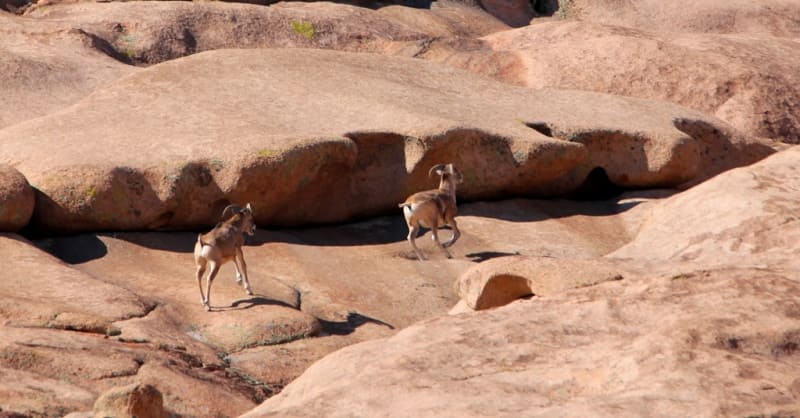
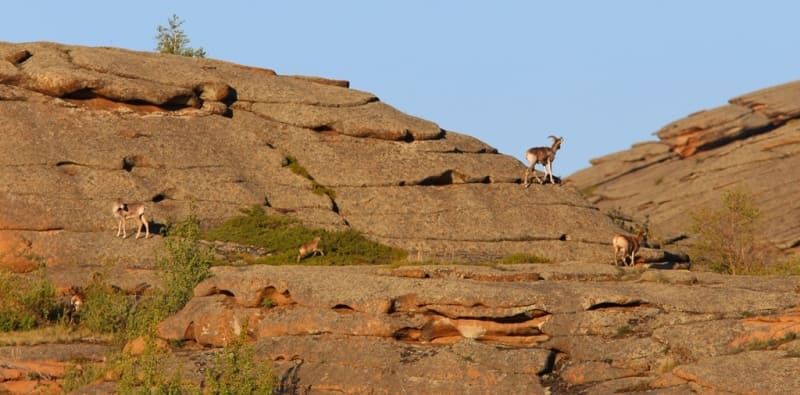
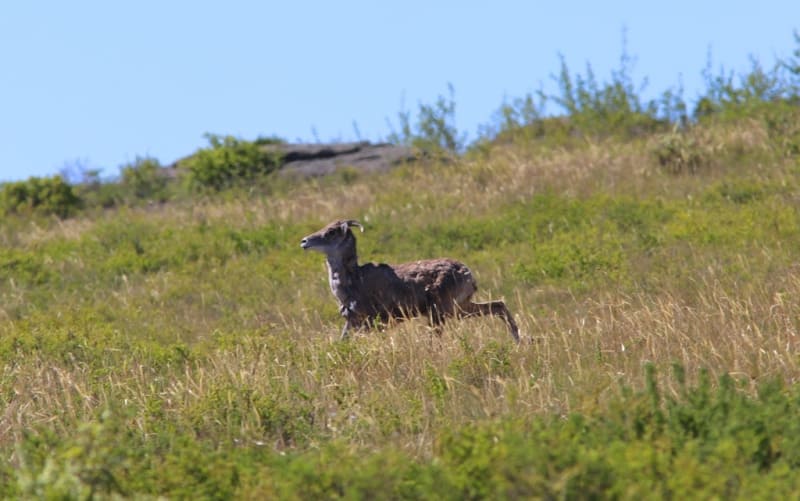
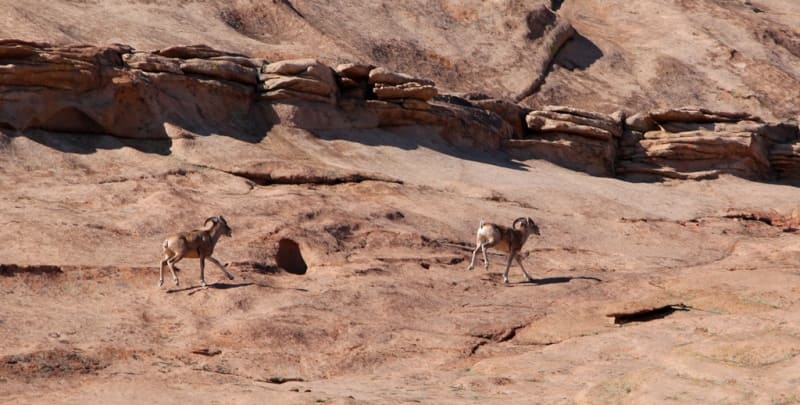
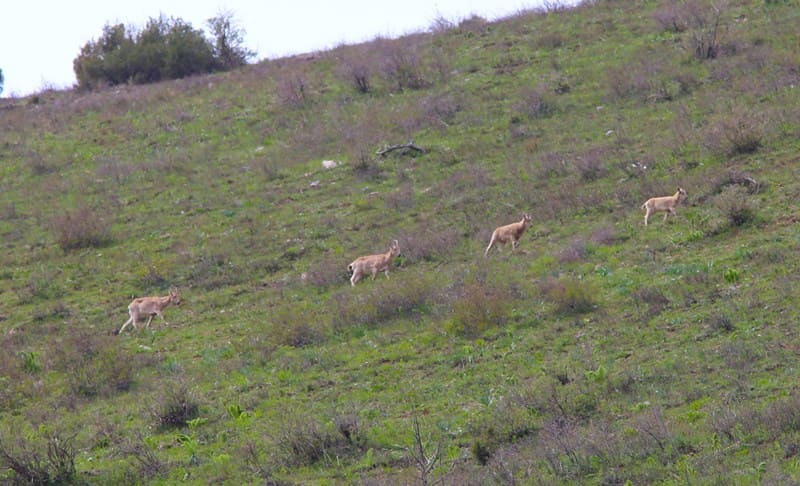
Authority:
Mikhail Mikhailovich Prishvin. 1926. Collected Works in Eight Volumes.
Photos by:
Alexander Petrov.







